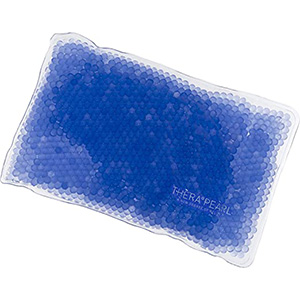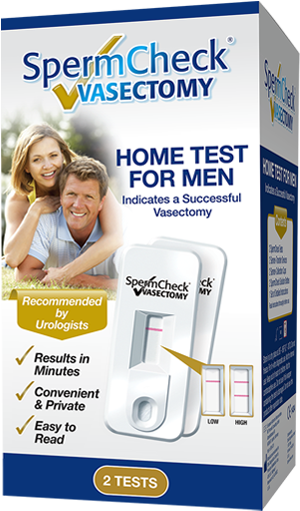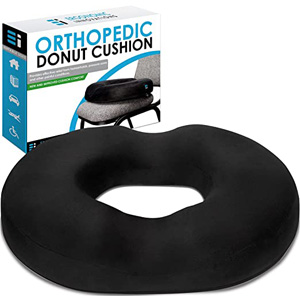Categories: Complications, General
No scalpel – No needle, single midline puncture, open-ended, fascial interposition, vasectomy performed 5 weeks ago. Left side went smoothly although with some dull pain discomfort as the vas was clamped and presented. Once the pressure clamp was release there pain subsided. Right side on the other hand almost made me pass out as the vas was clamped. Both the surgeon and assistant were up at the head end to ask if everything was ok. – It sure didn’t feel ok. Although not sharp pain, still VERY strong dull pain. Had a hard time keeping my eyes straight. Surgeon eased off on the pressure with some relief, quickly administered additional local anesthetic and finished off his business with no further incidences. Recovery without any bruising and only very little bleeding (few drops for a couple of days). Followed through with anti-inflammatory treatment (athletic support, icepack on and off and 6x 400mg Ibuprofen/Advil daily for a week).
Scrotum feels “looser” than before – both testicles generally hang lower and seem to be getting more in the way when (foolishly!) trying to cross legs or roll over in bed. Left testicle appears the lowest in place towards the back and is without discomfort, relatively. The right one however seems slightly inflamed with general feeling of dull discomfort (not directly pain) and tends to climb up towards the penis where the scrotum has gained some excessive flaps – almost like a little pocket. I guess this is due to a general inflamation of the scrotum. Right testicle also had one episode of what felt like a twisted testicle – painful / very tender for an afternoon (5-7 days post-op). Warm bath helped on that one.
General soreness on the right side together with some discomfort along both groins extending sort of down under and in behind the bladder is starting to be a nuisance both day and night.
Ok – this is starting to sound like I’m a whiner. I usually deal with pain without medication (haven’t taken any painkillers for years if not more than a decade), but this here is not the usual recover-in-a-week kind of thing. It’s more or less like a constant dull discomfort reminding you every fifteen minutes that something is different.
The good news is that sexual activity and general ejaculation seems to alleviated the pain, however more intense stimulation is require to reach climax now and the erection does not hold for as long as it used to, but as you and many others have described that should be unrelated to the vasectomy (?).
Should it be expected to have a continues inflammatory response 3-5 weeks post-op as the granulomas form and the system responds to the remaining ducts plugging up ?
Is it possible there was some nerve damage during the clamping of the right vas ? If so – what implications would that have and is a spontaneous recovery expected ?
Appreciate your column here. Definitely one of the more sincere and valuable ones on the net.
Pain in the scrotum after a vasectomy can present in various ways. Persistent pain for 5-8 weeks is uncommon. A trial of conservative methods should always be the first line of therapy. Usually, a one week course of anti-inflammatory medication is inadequate treatment. Patients benefit more from a prolonged course of 4-6 weeks of daily therapy. Sometimes, the longer acting, once daily, anti-inflammatory medications are better suited in these situations.
Sperm granulomas do not universally form in every individual after a vasectomy. It is more commonly seen in patients who undergo an open-ended vasectomy. In these cases the testicular end of the vas deferens is left open and allows sperm to drain from the epididymis. If an open-ended vasectomy is done, this usually is protective against back pressure on the epididymis and scrotal pain. The sperm granulomas themselves are rarely the cause of scrotal discomfort, but can be felt as a small lump in the scrotum adjacent to the vasectomy site. Sperm granulomas can cause some discomfort or become noticeable only if they become very big and begin to impinge on adjacent structures.
Relief of scrotal discomfort after sexual intercourse would suggest that the pain is not coming from the testicle or epididymis, but perhaps further downstream from the prostate or seminal vesicles. Problems in these structures can cause radiating pain to the groin or scrotum that can oftentimes be confused for scrotal pain. It is important to remember that once you have had a vasectomy it does not mean that you are immune from developing other problems such as prostatitis or pelvic pain which are fairly common conditions in men.
Nerve damage during the vasectomy is always a possibility. However, damaging the nerves that innervate the testicle or epididymis usually results in paresthesias (lack of sensation) in the end organ. Nerves carry the signals for sensation to the brain and any interruption in this network only interrupts transmission of these sensations. In fact, spermatic cord denervation is a surgical treatment for patients with chronic post vasectomy pain syndrome. One of the diagnostic tests for post vasectomy pain is a spermatic cord anesthetic (block) to insure that the pain is truly originating from the testicle/epididymis. If this is the case, and conservative treatment options have been exhausted, then one should consider some type of surgical treatment option. A response to an earlier question on post vasectomy pain disusses the surgical treatment options.
Uncommonly, some men will notice that their testicles hang a little lower after a vasectomy. However, the structures of the spermatic cord (testicular blood vessels, lymphatics, nerves and vas deferens) are not necessarily supportive structures for the testes. Additionally, cremasteric muscle fibers surrounding the spermatic cord can contract changing the location of the testicle in the scrotum. Any man can appreciate this contraction of the cremasteric muscle by lightly scratching the inside of the thigh. This will cause a cremasteric reflex. The scrotum itself provides support for the testicles. The scrotum plays an important role in temperature regulation of the testes. It adjusts to the ambient temperature by contracting and relaxing. This can make the testicles appear that they are higher or lower in the scrotum.
- The topic ‘Post vasectomy recovery, scrotal swelling and testicular discomfort’ is closed to new replies.



